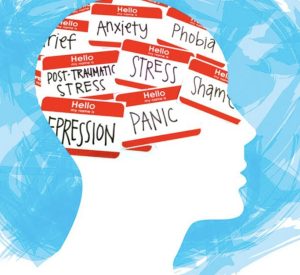As finals week approaches, many students are experiencing what’s sometimes referred to as: Pre Exam Traumatic Hyper Anxiety Disorder. However, as intense and stressful as that may sound, there are ways to stay determined. Here are six science-proven ways to protect your mental health during the last leg of the semester.

1. Don’t Isolate
You’re not alone, be in community with your peers. Connections with your teachers, coaches, family, are all protective factors to preserving mental health during a stressful time.
“Relationships are vital to our well-being. Making time for them will help you get through it. We all need a pit crew and cheerleaders to spur us on.” – Psychology Today
2. Look at the big picture
Mental health is more important than short term grades in high school. How you do in school does not define your standards as a human being, but unhealthy habits can have long term impacts which can perpetuate a destructive lifestyle. You’ve accomplished a nearly whole year of academics already; take pride in that, but no one can sprint through marathons without taking breaks.
“Take put stops to nourish your mind, body, and soul. Keep a sustainable pace. There’s no success without mental health” – Kristen Lee, Ed.D, Behavior Science Professor
3. No All-Nighters
Sleep is necessary to do anything – literally anything – during the daytime. Being rested each night is crucial to not only feel refreshed in the morning, but also to retain all the cramming you did in the previous day. Contrary to popular belief, prioritizing your sleep does not categorize you as a lazy person –
“Disorders [due to a lack of sleep] have fatigue as a major symptom. Included are: major depressive disorder, minor depression, dysthymia., mixed anxiety-depression, seasonal affective disorder, and bipolar disorder.” – American Psychological Association
4. Make to do lists
Oftentimes, the reason your study plan can seem so daunting is because they are all a jumbled mess in your head. Instead, breaking down your massive list of things to do into smaller chunks of digestable information and sorting them by days will not only improve the pacing of your cram sessions, but also put into perspective that the work-load is not as formidable as it might seem.
This can take the form of a rough list drawn in the early morning hours on a sheet of scratch paper, or it can be a well organized catalog of the day and time to complete your task.
“Scheduling your work alleviates anxiety because it helps to prioritize and gives a sense of structure amidst chaos. It also provides a track record of what is done and what remains.”
5. Exercise
Exercising is a excellent way to physically maintain your wellbeing and mentally reset. Regular physical activity delivers nutrients and oxygen to your brain and improve your memory and brain function. However, on a mental level, it can also reduce feelings of anxiety and depression and improve your quality of sleep through relaxation.
Oftentimes, it might feel overwhelming to add another tedious activity to your schedule. However, it is perhaps helpful to think of exercise as a ‘reset’ that allows your mind to relax.
6. Don’t stress about being stressed
Even a perfect human being can not avoid stress. The finals are coming, but the finish line still seems far away. It is good for the brain to be motivated by stress to be productive; it is not good, however, to be overly obsessed to a point that would cause one to lose sleep. All of the healthy habit building factors above can help to relieve the stress that builds up in everyday life.
“Don’t freak out about freaking out. It’s normal. It shows you’re invested, that you care, and that you want to do well.”
Bottom Line
As the end of the year approaches, keeping a level headed psyche can drastically improve your finals experience and finish the academic year strong.






